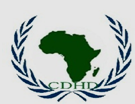If current trends persist, by 2030 more than half of the world’s poor will be living in countries affected by high levels of violence. Yet, resources devoted to peacebuilding and prevention represent only a fraction of those for crisis response and reconstruction. Similarly, while the new international frameworks for development, humanitarian action, and peace and security have highlighted the need to focus on peace, justice and inclusion, little has changed in practice.
Member States have affirmed the centrality of peace and prevention, first through their commitment to “foster peaceful, just and inclusive societies” in the 2030 Agenda, and then with the twin resolutions on Peacebuilding and Sustaining Peace. Recent research and analysis, including the UN World Bank study Pathways for Peace: Inclusive Approaches to Preventing Violent Conflict and the new report The Missing Peace: Independent Progress Study on Youth, Peace and Security, have reaffirmed the necessity of mechanisms for addressing difference and grievances, of strengthening social resilience, and supporting processes that increase trust and inclusion.
Despite this growing body of evidence, in many cases governments are pursuing security using militarized approaches, either in the absence of, or in isolation from, policies that decrease exclusion and inequality – core drivers of conflict. This has been accompanied by an eroding commitment to long-term multilateral approaches to global challenges. Rather than embracing diversity, many governments are actively seeking to shrink the already limited space available to civil society actors, locally, nationally and in international settings. If we are to have a hope of eliminating extreme poverty, fostering sustainably peaceful and prosperous societies worldwide, and addressing conflict and its roots, then governments need to urgently re-align their priorities.
The 73rd session of the UN General Assembly provides many opportunities for Member States to re-commit to peace. The year begins with the 70th anniversary of the Universal Declaration of Human Rights and the convening of the Nelson Mandela Peace Summit. It will then include an interim report by the UN Secretary-General on implementing peacebuilding and sustaining peace, and the High Level Political Forum where SDG16 will be reviewed. The year will also see an increasing focus on preparations for the 74th session, which will feature the quadrennial 2030 Agenda Summit and the comprehensive review of the UN Peacebuilding Architecture.
As organizations devoted to the building of peace around the world, we call on the international community to take these steps:

